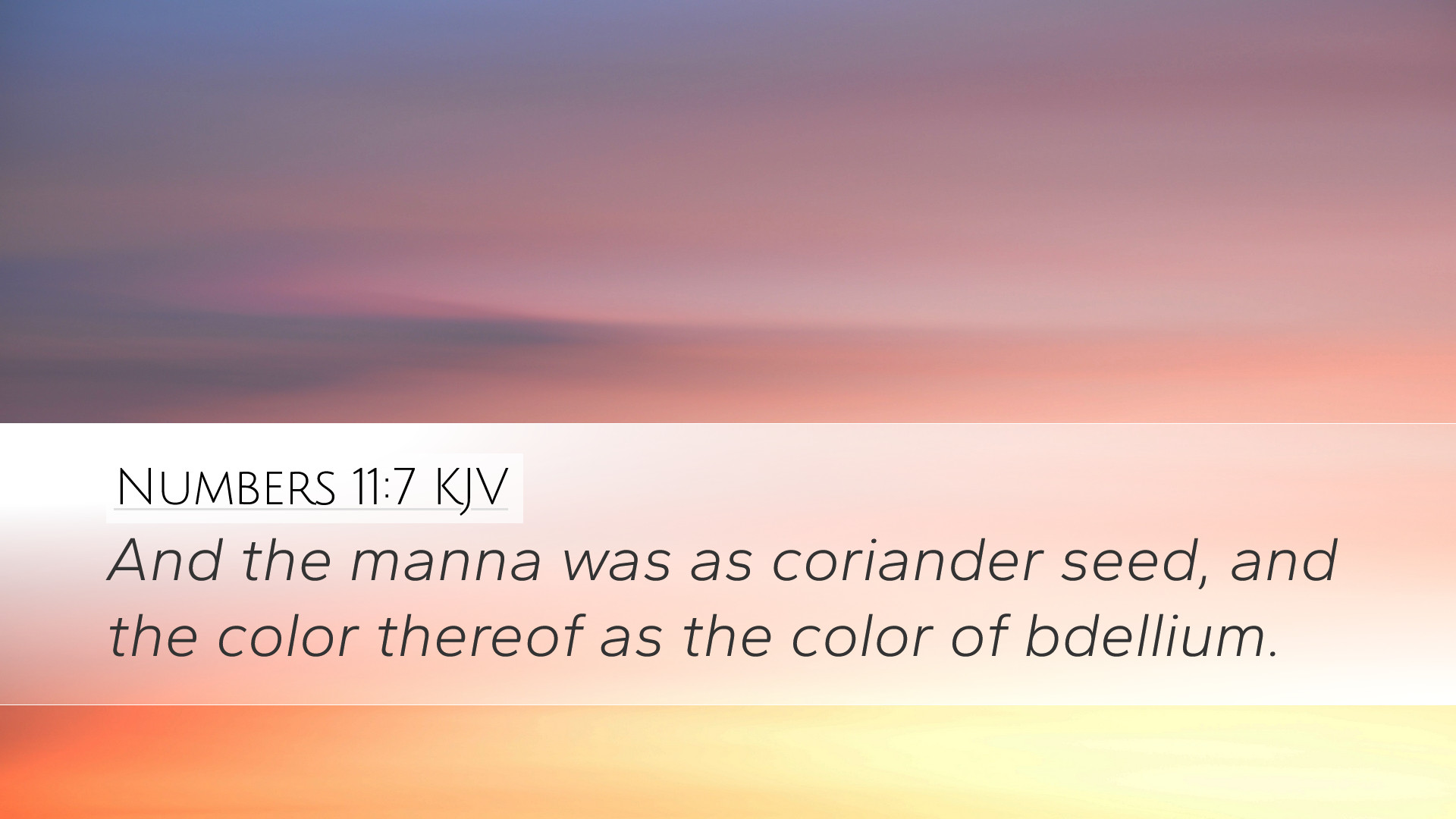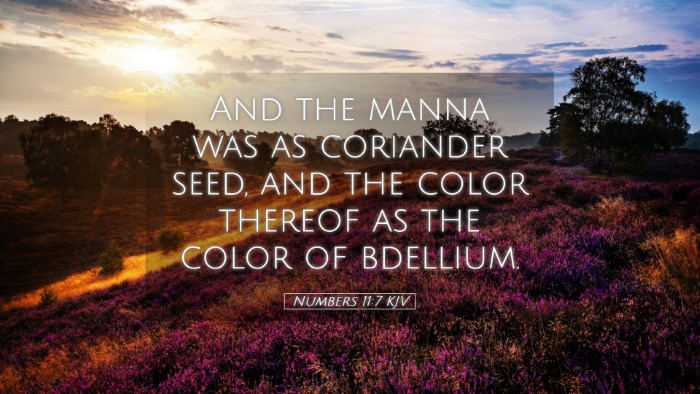Contextual Overview
The Book of Numbers is a narrative that deals deeply with the experiences of the Israelites during their journey in the wilderness. Numbers 11 presents a pivotal moment wherein the people complain about the manna, leading to God responding to their dissatisfaction. In verse 7, we see a description of the manna itself, which has profound theological implications regarding God's provision and the Israelites' response.
Insights from Public Domain Commentaries
1. Matthew Henry's Commentary
Matthew Henry emphasizes the miraculous aspects of manna, referring to it not just as physical sustenance, but as a symbol of God's daily provision. He notes that the comparison of manna to coriander seed highlights its unassuming nature. The description suggests both its nourishing quality and simplicity.
Henry suggests that the peculiar color of the manna, akin to bdellium, illustrates its exclusivity and divine origin. He reflects on how the mundane could be elevated through divine intervention, representing that what seems ordinary can have extraordinary significance when used by God.
2. Albert Barnes' Notes
Albert Barnes takes a closer look at the physical description of manna, analyzing its various properties. He explains that the comparison to coriander seed reflects the small size of the manna, indicative of God’s provision in a manageable form. Manna was significant for its sustenance – God's people were fed without any agricultural endeavors, underscoring His power over creation.
Moreover, Barnes highlights the sensory qualities of manna, focusing on its color and texture. He connects these observations to the spiritual nourishment that believers receive from God, wishing to accentuate that the experiences of the Israelites in the wilderness mirror the spiritual challenges faced by contemporary believers.
3. Adam Clarke's Commentary
Adam Clarke provides a detailed historical and etymological insight into the terms used in this verse. He interprets the word 'manna' and discusses its origin—essentially interrogating what the Israelites might have thought about such a miraculous food source. Clarke notes that the people might have misconstrued the heavenly nature of this sustenance due to its outward simplicity.
Clarke also emphasizes a theological consideration of this verse—that God's provision should inspire gratitude, rather than complaint. He raises the question of why the Israelites were discontented when they had a constant source of miraculous sustenance. Clarke posits that this reflects human nature's tendency towards ingratitude in the face of divine blessings.
Conclusion
Numbers 11:7, while presenting a simple description of manna, carries profound implications for understanding God's provision and human nature. The commentaries from Henry, Barnes, and Clarke collectively invite readers to reflect on the importance of recognizing and cultivating gratitude for God’s gifts, irrespective of their ordinary appearances. As pastors, students, and theologians engage with this text, they are encouraged to inspire their congregations and contexts to appreciate the richness of God’s daily provisions and the spiritual reminders found within this sacred text.


